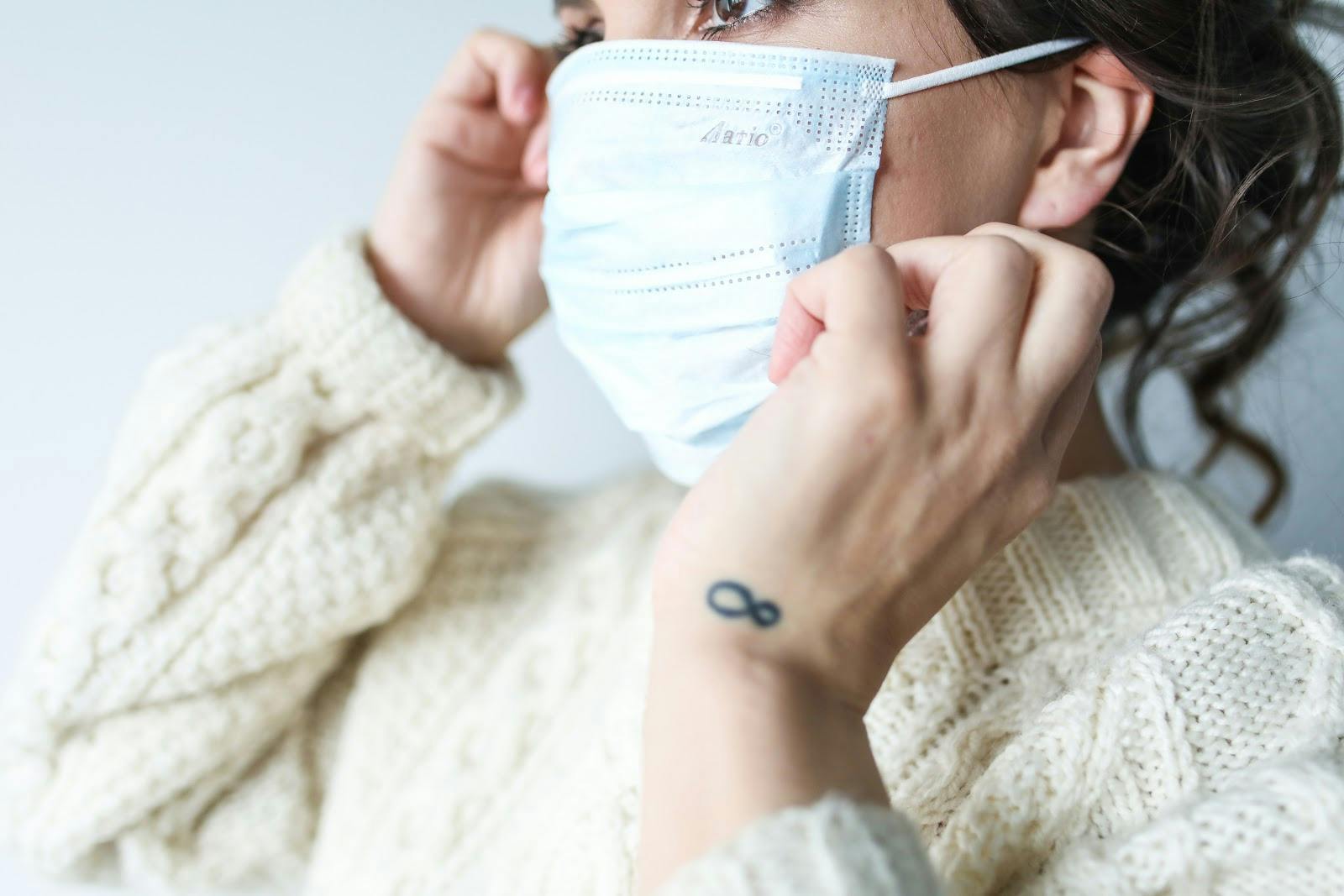Skip to content

Insomnia can be reduced by following a sleep-work schedule that is maintained regularly.Reaching out to your friends or loved ones living in isolation can really help them get through these challenging times with ease and comfort.If you are aware of anyone resorting to substance and alcohol abuse or someone unable to cope with the mental stress and anxiety created by the pandemic or if you find yourself in such a situation, please contact helplines and support groups and seek professional care. (Some are mentioned at the end of this blogpost.)If you find yourself or your children losing focus, becoming restless and and overly tired, meditation and mindfulness apps have proved to be helpful. App developers have designed special audio books and narrative stories to help engage children who may find the idea of meditation “boring”. If you feel too much work has piled up around the house, make sure to decide which chores are necessary and then divide them among all the members of the family without putting too much pressure on each other to do them first thing in the morning, which tends to create a negative environment in the house for everyone. If you have friends or family members with a history of mental illness, or even somebody who might need to talk to a familiar voice, this is a great time to use social media positively by staying connected. Make them laugh, make them feel loved and necessary, or maybe just listen. Let them know you care. You never know how it could have a positive influence on their day.Although it is great to stay aware of the daily updates, it is crucial to take time off from watching and listening to media channels as it can cause hysteria and be mentally disturbing for many.If the pandemic is adversely affecting your mental health in any way, try focusing your energy on something you love doing. The best and the most common way to distract the mind is to pick up a hobby, any activity that helps one relax and this is also a great time to try out new things as long as they are insidoors and pose no threat to health otherwise. For example: Reading, writing, cooking, binge-watching a new TV show, playing board games with your family members etc.Do not go to the internet for medical diagnosis and advice rather contact your own doctors who know you and understand your medical history as not everything on the internet will apply to your personal situation. Strictly refrain from self medication without consulting your doctor first for multiple reasons including (but not restricted to) addiction to the drug, interference with other medication, it won't be on your medical record which can cause problems for any unforeseen emergency in the future. Your doctor will prescribe the right amount of the drug and knowing your medical history, suggest what is best for you and might give a valid reason to not take the medication.If you are quarantined with your family or a group of friends or even just your significant other, remember that everybody requires some personal space in times like these. Therefore it will be greatly appreciated by them if you respect their privacy and give them the space they require.It is extremely important to take care of your body. Along with having a proper hygiene routine, try to stay as active as you can and try to fit in a home workout everyday. Eat healthy as it will be crucial to maintain your health especially as it is best to avoid hospitals at such a time.Communication is key. Please communicate with your friends and family, talk about their well being, your wellbeing. Share your own feelings, if you expect them to share theirs. If you are/you know someone suffering from PTSD or suspect the same visit for more information about symptoms, ways to help etc.For everybody worried about colleges and applications, all colleges and admission boards have taken into account the recent state of all countries and extended the deadlines, they understand the stress on young students and it is best to focus on what you can control, and how you want to utilise your time. Try to work on new projects or find new reading material that might help you with your higher studies, or try using the aforementioned time-killers. School students who are faced with a lot of workload, try taking baby steps and finish one task at a time. Video sessions have proved to be more effective than normal calls as one will also be able to see the person, and can figure out, to whatever extent, if they have been doing okay.For anybody experiencing ANY KIND OF DOMESTIC ABUSE please contact your country’s helplines some are mentioned below.
SAMHSA’s National Helpline, 1-800-662-HELP (4357), (also known as the Treatment Referral Routing Service) or TTY: 1-800-487-4889 is


 Mental Stress during the COVID-19 Pandemic and Guidelines to Cope with It
Mental Stress during the COVID-19 Pandemic and Guidelines to Cope with It
Ensure a safe and healthy quarantine for yourself and your loved ones by taking these few, simple but essential steps.

Tvisha Singhal
Published on:
May 2, 2020


The COVID-19 Pandemic, an unforeseen event that has affected millions in a seemingly short period of time, has taken a mental toll on all of us, in one way or another. The stress and anxiety levels have shot up by a great deal. Cases of dementia and psychosis have increased too. The news and the cases that come in, every day are deeply disturbing and saddening. Many have their families and children to worry about, while others are frustrated of living alone in a confined area. Those going to work everyday may also face paranoia as they deal with this fatal disease head-on. Those already suffering from mental illness are not being able to get the attention they require, putting them into a vicious cycle of relapses. Previously PTSD diagnosed patients might find the pandemic triggering and display anger, jumpiness, flashbacks of previously suffered trauma and they will have a hard time getting through it alone.
School-going students have stress about colleges, their future and school workload now more than ever, Online classes, though helpful, are far from the experience of physically being in the classroom. Those living in large families are not able to get their privacy and space, which is essential in order to be fully productive and calm during this havoc-like situation. Children and minors who live in mentally and physically abusive households might have it worst of all. People losing their jobs during the financial crisis, suffer from a great amount of stress and worry everyday as most of them have families to support. All lifestyles and plans for 2020 have frankly, come to a standstill.
However, let us not forget how important quarantining ourselves is to help prevent the spread of this fatal disease. Social distancing is perhaps the only successful step for prevention until a vaccine is discovered. Hence, it is our responsibility to stay at home and stay safe and with help from articles and videos such as this one, and take the right learning on how to make quarantine peaceful for our families, roommates, and loved ones.
Firstly, it is important to know that anxiety, depression and other disorders that may crop up during these testing times, are a perfectly normal, human response to the chaos caused in everyone’s life, primarily due to the pandemic. Secondly, an important part of overcoming these problems is recognizing them, for yourself, your friends, and your family then taking help from a medical professional to help solve your problem.
The greatest news of all is that stress and anxiety caused due to current affairs have been well recognized by support groups and governments of many countries who are actively working on improving the situation. Through surveys, research and personal experience, I’ve found some of the most effective ways through which we can help each other get through these tough times and make the experience bearable:
To conclude, please ask for help, contact an adult who might be able to provide any advice or support, contact medical professionals, contact online support groups, contact helplines and most importantly contact your friends and family which will help their well being as well as your own. You will not be able to get through this situation if you don't reach out. People do care. This too, shall pass.
Helplines
(THESE HELPLINES AND WEBSITES ARE NOT RECOMMENDED BY US IN ANY WAY THESE ARE JUST THE ONES THAT ARE EASY TO FIND ON THE INTERNET. IT IS FOR YOU TO DECIDE IF THEY ARE THE RIGHT ONES FOR YOU. I HIGHLY RECOMMEND CONTACTING A PROFESSIONAL WHO MAY KNOW YOUR PERSONAL SITUATION.)
(for more helplines)

References

Photo by Polina Tankilevitch
Want to print your doc?
This is not the way.
This is not the way.

Try clicking the ··· in the right corner or using a keyboard shortcut (
CtrlP
) instead.